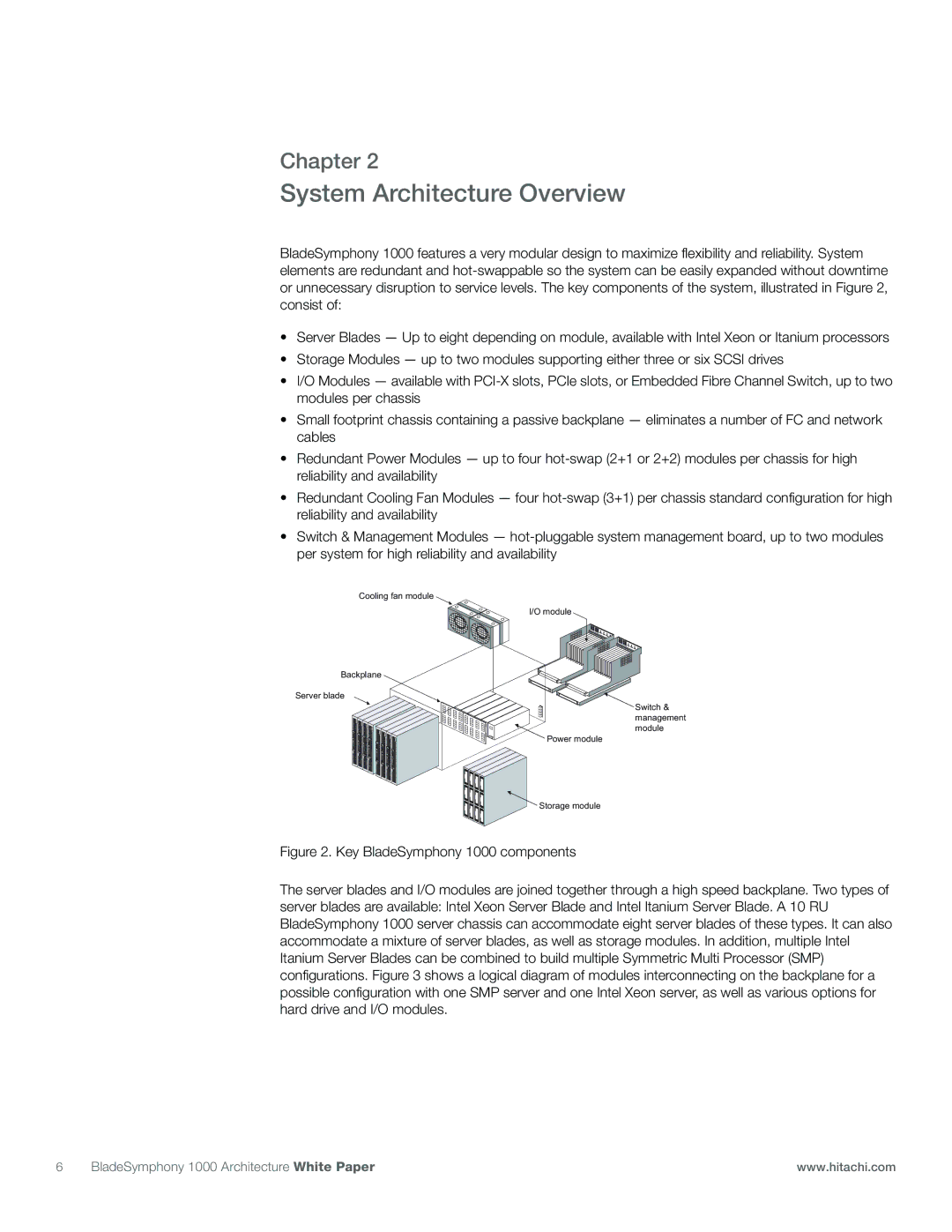
Chapter 2
System Architecture Overview
BladeSymphony 1000 features a very modular design to maximize flexibility and reliability. System elements are redundant and
•Server Blades — Up to eight depending on module, available with Intel Xeon or Itanium processors
•Storage Modules — up to two modules supporting either three or six SCSI drives
•I/O Modules — available with
•Small footprint chassis containing a passive backplane — eliminates a number of FC and network cables
•Redundant Power Modules — up to four
•Redundant Cooling Fan Modules — four
•Switch & Management Modules —
Cooling fan module
I/O module
Backplane
Server blade
Switch &
management
module
Power module
![]() Storage module
Storage module
Figure 2. Key BladeSymphony 1000 components
The server blades and I/O modules are joined together through a high speed backplane. Two types of server blades are available: Intel Xeon Server Blade and Intel Itanium Server Blade. A 10 RU BladeSymphony 1000 server chassis can accommodate eight server blades of these types. It can also accommodate a mixture of server blades, as well as storage modules. In addition, multiple Intel Itanium Server Blades can be combined to build multiple Symmetric Multi Processor (SMP) configurations. Figure 3 shows a logical diagram of modules interconnecting on the backplane for a possible configuration with one SMP server and one Intel Xeon server, as well as various options for hard drive and I/O modules.
6 | BladeSymphony 1000 Architecture White Paper | www.hitachi.com |
